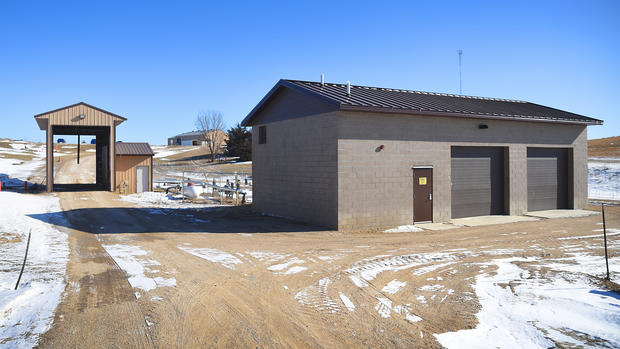WILLMAR—An innovative demonstration project to collect and purify leachate on site at the Kandiyohi County landfill encountered a few setbacks during its first full year of operation.
Overall, though, engineers rate the project—the first of its kind in North America—a success with many lessons learned.
“We’re excited to still be part of it,” said Greg Ackerson of Apex Efficiency Solutions, one of the partners in the project.
Ackerson and Vladimir Scheglowski of Clark Technology gave a report Tuesday to the Kandiyohi County Board of Commissioners on the ups and downs of the past year and the next steps ahead.
The groundbreaking leachate treatment system went live at the county landfill in mid-2015. Leachate that filters through the garbage mass is collected and piped to an on-site treatment facility, where it’s processed to meet drinking-water standards. The clean water is then discharged to a holding pond and eventually absorbed back into the environment.
It’s the ultimate in recycling. County officials believe it will help protect the local environment for the life of the landfill and beyond. It also will help Kandiyohi County save thousands of dollars annually that would otherwise be spent to truck the leachate for treatment at a wastewater facility.
The project has won multiple state and national awards for its innovative approach to handling landfill leachate.
The relative newness of the technology has been accompanied by a learning curve, the consultants said this week.
“It was an eventful year,” Ackerson said.
One of the earliest issues that engineers and landfill staff had to iron out was with some piping that proved to be too narrow to handle incoming flow. The problem was fixed by replacing some of the pipes. Flow meters also were added to improve system performance.
The next hurdle involved an unexpected spike in the amount of boron in the treated leachate. Ackerson and Scheglowski said testing was unable to determine why the boron levels were elevated, but a boron treatment system was added, at no cost to Kandiyohi County, to correct the problem.
A series of heavy summer rainfalls, including a 10-inch deluge last August, may have been the biggest challenge.
Although the leachate treatment system is designed to handle normal fluctuations in rainfall, it was hard pressed to manage a 100-year rain event, especially when the volume of rainwater led to surface ponding on the landfill itself, Ackerson and Scheglowski said.
Leachate had to be trucked out of the landfill for treatment elsewhere until the water issues resolved, they said.
Because of this, along with the various shutdowns to deal with the mechanical and technical issues that cropped up, the system fell short of operating at full capacity last year, treating 2.4 million gallons of leachate rather than the 3.7 million gallons annually that it was designed for.
Addressing the challenges provided a wealth of lessons and practical experience, Ackerson said. “It’s been an interesting learning year.”
Overall, the consultants are satisfied with how the treatment facility has functioned. “The system is meeting its requirements,” Scheglowski said.
By this summer, a Minnesota Pollution Control Agency permit to operate the facility as a demonstration project will be replaced with a state disposal system permit. Early discussion also is underway on doubling the facility’s capacity to 20,000 gallons a day. The increase in capacity initially was up for consideration in 10 years but could be a possibility “maybe sooner rather than later,” Scheglowski said.
County officials were upbeat about the first year’s performance.
The learning curve was expected, said Larry Kleindl, county administrator. He said the entire project has been “a lot of work by a lot of good people.”
Because the on-site leachate treatment system is among the first in the U.S., what happens here is being watched very closely, Kleindl said. “This will be a model that will be used across the nation and it’s here in Kandiyohi County.”
West Central Tribune by Anne Polta

